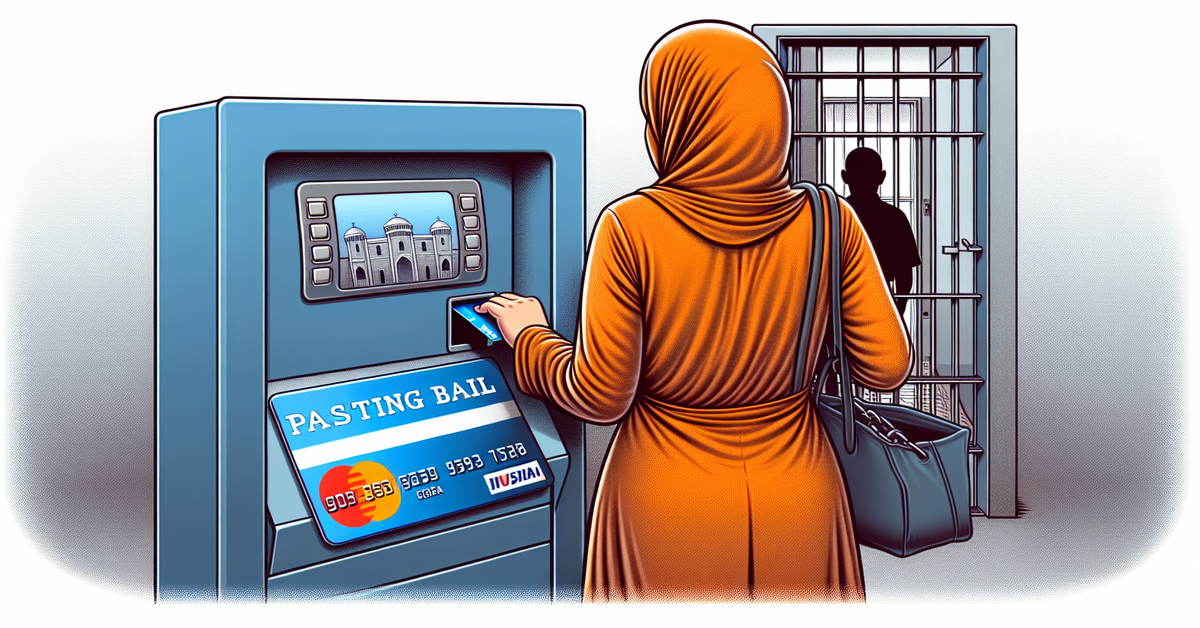You might be surprised to learn that in certain jurisdictions, you can actually post bail using a credit card. However, whether this option is available varies greatly depending on local court rules or the policies of bail bondsmen. Before you consider this route, it's essential to understand the potential fees and interest rates involved. So, what should you know about the process and its implications for your finances?
Understanding Bail Payments
When facing a legal situation, it's crucial to understand how bail payments work and what options are available to you. Bail is a sum of money that acts as a guarantee for your appearance in court. Typically, you can pay bail in cash, through a bail bondsman, or by other accepted methods, depending on the jurisdiction. The amount is set by the court, based on factors like the severity of the charge and flight risk. If you can't afford the full bail amount, a bail bondsman can help, charging a percentage as a fee. Understanding these options guarantees you can navigate the bail process efficiently, securing your release while minimizing stress and uncertainty during a challenging time.
Credit Card Options for Bail
Using a credit card to post bail can be a convenient option, but it's essential to understand the limitations and requirements involved. Not all jurisdictions accept credit cards for bail payments, so you'll need to verify if your local court allows it. Additionally, some bail bondsmen may offer services that facilitate credit card payments, but they often charge fees that can increase your total cost. It's also important to take into account your credit limit and whether you can pay off the balance quickly to avoid high-interest charges. Always read the terms of service carefully, and confirm you're aware of any potential penalties. Being informed will help you make safer financial decisions when steering through the bail process.
Pros and Cons of Using Credit Cards
The decision to use a credit card for posting bail carries both advantages and disadvantages that can greatly impact your financial situation. On the positive side, using a credit card can expedite the release process, providing immediate access to funds without needing cash. It also allows you to manage payments over time, which can ease the financial burden. However, there are drawbacks to evaluate. Credit cards often come with high interest rates, potentially leading to substantial debt if the balance isn't paid promptly. Additionally, not all bail bondsmen accept credit cards, limiting your options. Finally, relying on credit can affect your credit score, especially if you don't manage your payments responsibly. Weigh these factors carefully before making a decision.
How to Use a Credit Card for Bail
To successfully post bail with a credit card, you'll need to first confirm that the bail bondsman accepts credit card payments, as not all do. If they do, gather your credit card information, including the card number, expiration date, and security code. Next, be prepared to provide personal identification, such as your driver's license or Social Security number, as this information may be required for the transaction. Understand that there could be additional fees associated with using a credit card, which may vary by bail bondsman. Once you've completed the transaction, keep all receipts and documentation in case of any disputes. Using a credit card for bail can be efficient, but make certain you're aware of all terms before proceeding.
Alternatives to Credit Card Payments
While credit cards can be a convenient option for posting bail, there are several alternative payment methods available that may better suit your needs. Here are some reliable alternatives to examine:
| Payment Method | Description |
|---|---|
| Cash | Often the simplest option; make sure you have enough on hand. |
| Bail Bonds | A bail bondsman can post bail for you for a fee, typically 10-15%. |
| Money Orders | Safe and secure, these can be purchased from banks or stores. |
Choosing the right method depends on your financial situation and urgency. Each option has its pros and cons, so it's wise to weigh them carefully, making certain you prioritize safety and compliance with any legal requirements.



